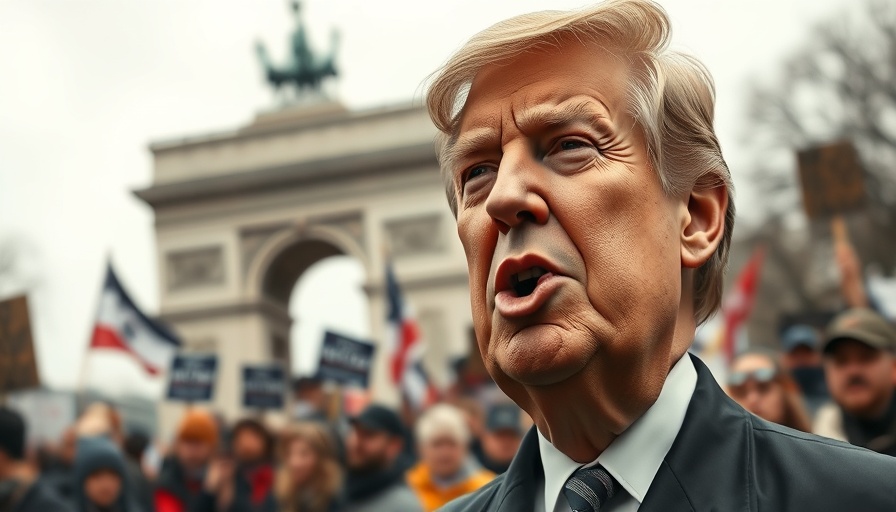
Trump's Tariff Madness: A Recipe for Economic Chaos?
As President Trump's administration continues to impose tariffs on various trading partners, the ramifications are making the United States appear increasingly like a global laughing stock. While some may argue that tariffs can serve as a tool for rethinking trade and promoting American industry, the chaotic execution and contradictory rationale have left many financial analysts and investors bewildered.
Ironically, the case for tariffs is built on a solid foundation: the inequality fostered by globalization that has left many American jobs vulnerable to cheaper overseas labor. Yet, instead of crafting a coherent strategy, the White House has abandoned rational discourse, portraying an image that seems more like a chaotic gamble than a deliberate plan for economic reset. The current facade is causing considerable unease in the global market as investors pull back in response to uncertain policy direction.
Why This Tariff Regime Matters
With significant daily fluctuations in major stock indices, the unpredictability surrounding Trump’s tariffs is sending shockwaves through both domestic and international economies. The FTSE 100, Germany's Dax, and Hong Kong’s Hang Seng recently experienced sharp declines, serving as indicators of a broader financial unease. This impacts everyday Americans, as consumers will eventually bear the cost of these tariffs. The more the economy struggles, the more the average American feels the squeeze, leading to increased skepticism regarding domestic economic revival.
The True Purpose Behind These Tariffs: What Are They Really Aiming To Achieve?
Is this haphazard tariff implementation merely a high-stakes bargaining tactic, or is it genuinely intended to reshape global trade dynamics? The reality remains unclear. If the administration is aiming for substantial revenue generation, how can it justify the often arbitrary tariff rates? For instance, why is Lesotho facing a 50% tariff while Liberia sees only 10%, particularly when both are minor players on the global stage? The miscalculations point to a governance system that lacks fundamental understanding, not just about economics but about global relationships.
Financial Markets on Edge: The Investors' Perspective
As we witness the repercussions of these policies, the financial markets remain on high alert. Over the past few weeks, even the staunchest supporters have begun to question whether these tariffs are sustainable long-term solutions. The hesitation among investors reflects a lack of clarity regarding not just the objectives behind the tariffs but how they will be implemented and enforced. This lack of foresight could be detrimental, especially when investors continuously reevaluate their positions as new developments arise.
Counterarguments: Is There a Case for Tariffs?
While many are critical of the current tariffs, some economists argue there may be valid reasons for implementing them. These tariffs could theoretically shield American industries from cutthroat international competition that has disproportionately benefited other countries. However, economics operates on a delicate balance, and the current approach appears more like a knee-jerk reaction than a meticulously constructed plan to achieve greater economic health.
Future Predictions: What’s Next for America's Trade Policies?
As we look at the unfolding narrative of Trump's tariffs, the implications for future trade agreements cannot be overstated. While the immediate results may seem negative, the longer-term impact hinges on whether a clearer strategy evolves from this chaos. If the administration can coalesce around clear objectives for tariffs, it might one day claim the narrative as progressive. Still, this transformation will require not just ontological clarity but also political resilience and popular support.
A Call to Action: Staying Informed
With so much at stake, it’s essential for consumers and investors alike to stay informed regarding these developments. Following the latest headlines and news updates can arm you with the information necessary to navigate an increasingly unpredictable economic landscape. The repercussions of these policies extend beyond the ivory towers of Wall Street and into everyday lives, and understanding them will help prepare us for the future.
 Add Row
Add Row  Add
Add 




 Add Row
Add Row  Add
Add 

Write A Comment